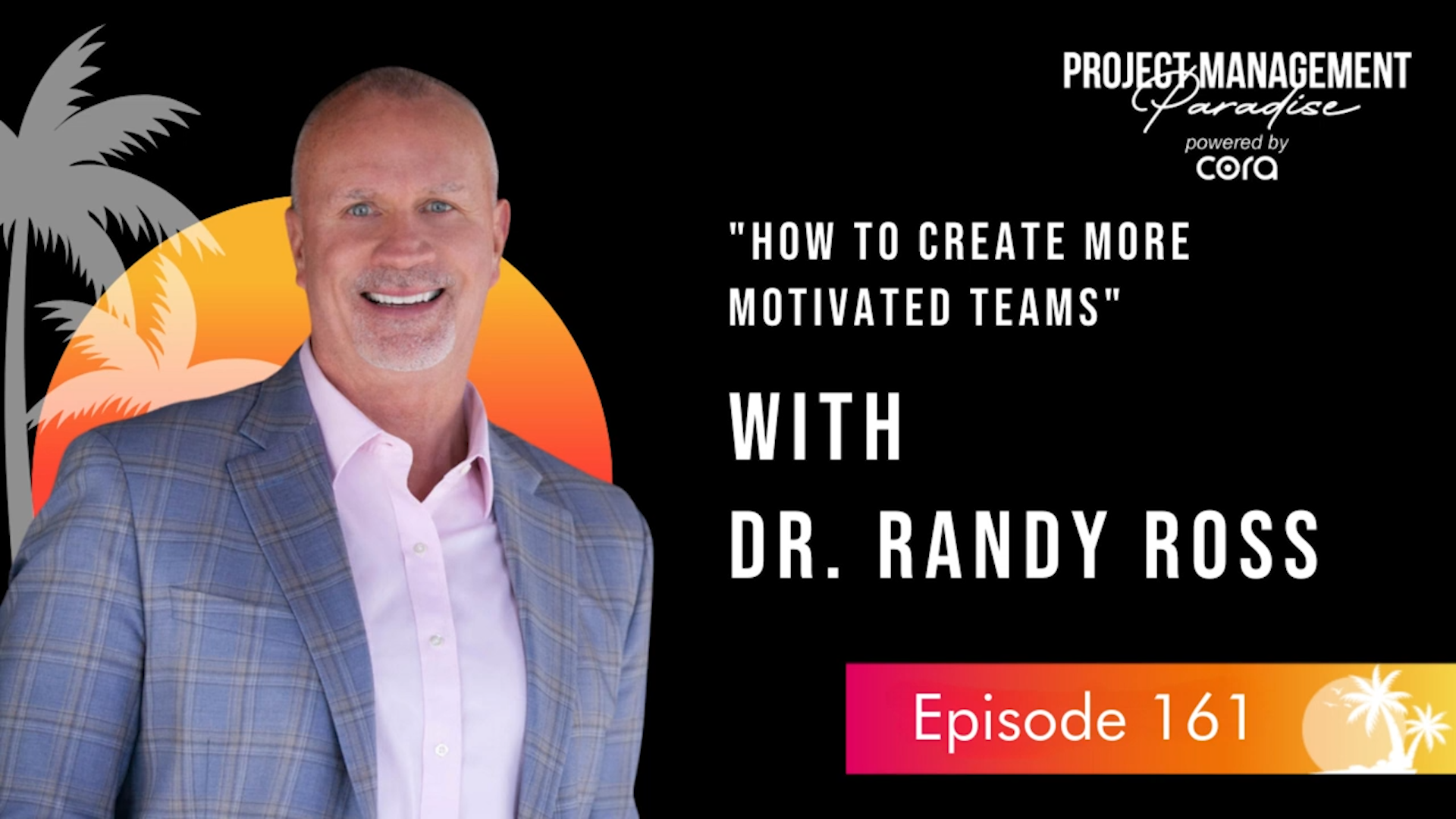In this episode, we discuss the concept of “Red Teaming” with Chris Stricklin, Director of Training & Standards in AfterBurner.
Chris is an award-winning leadership author, a highly sought-after motivational keynote speaker and a Combat-Proven Senior Military leader, retiring after 24 years. This part of his career culminated with CEO-Level leadership of a 7,000-person strong, $7B worldwide organization. In this interview, Chris shares his experience about leadership, managing effective teams including Red Teaming.
Subscribe to Project Management Paradise via one of the links above or on the right and you’ll automatically receive new episodes directly to your device.
Transcript from Episode 69: “Red Teaming” with Chris Stricklin
Can you share with us a brief overview of your background?
Happy to. I just retired after 23 years in the United States Air Force. I flew F-15s, I flew F-16s for the Air Force Thunderbirds. I worked at the Pentagon, running an $840 billion dollar part of our Enterprise, couple of assignments overseas, doing NATO jobs, I did a fellowship at the DARPA and a fellowship at the White House. DARPA is our Defense Advanced Research Project Agency. It’s really the cutting edge of how we have new technology in the United States and where we discover the new great thing that’s going to happen 20 years down the road and we make it happen in the next three or five years.
So, in terms of leadership then I’m sure you have some examples, what’s your favorite, what’s your best leadership example that you can share with us?
I work in business now with AfterBurner. I hear all the time “We want the most experienced team we can possibly have, that’s who we want in our planning, that’s who we want on our projects.” And we have to remember, I am passionate about project management because it’s both an art and a science. I really think it underpins the economic activity of all of our businesses and our success down the road.
So I look back to that experience and I think everyone will agree it’s important on high performing teams and it is. But high levels of experience, particularly when the members of the team have similar experiences, can actually limit your achievement. So, my biggest lesson learned was in my first command tour. As a commander in the United States Air Force, I hired a number two, my assistant that was just like me, he grew up flying the F-15s, he flew for the Thunderbirds, he walked and talked just like me. And after we work together for about three months he came in the office one day and said “Hey boss, we are an incredible team, we are like the old married couple, we finish each other’s sentences.”
And I looked at him and I said “If I had it to do over again, I wouldn’t hire you.” And it crushed him for a minute, but it opened our conversation of why. I was grooming him to be my replacement and I said “Here’s the lesson you need to take away – don’t have somebody that thinks just like you do because you have the same blind spots, you have the same mentality when you look at things and you need somebody that will be your biggest critic, although supportive, to help you see what you’re not seeing.” So that’s my biggest lesson – to make sure you don’t fill the room with people just like you because then all of you have the same blind spots.
And if we have an ego, we are almost afraid to hire somebody smarter than us?
That is true. You have to be confident in your leadership to admit you don’t know it all. As we go across businesses, I was in Manhattan two weeks ago with the CEO of ten billion dollars a year your company and he brought me, closed the door and had an open and frank conversation and told me where his challenges were and asked me questions about the military and how he could translate those lessons into his empire, his company. I was amazed at his confidence to admit where he had shortfalls and that’s really what makes us more eager to be a better leader down the road.
Can you give us just a quick overview of AfterBurner and your areas of speciality?
AfterBurner is a team of over 50 elite military professionals. We have Air Force fighter pilots, Navy Seals, Army Rangers, astronauts and we take those elite teams and we translate that to business. So, we all have to have business training in addition to our military background and translate the experience of the military where we turn over teams every year, every two years. Thunderbirds are a perfect example, out of the six demonstration pilots, three of them are new every year and they go through a 4-month training process.
How is it that the military can duplicate and ensure that level of success every year and it translates incredibly well to business? And that’s what Afterburner does. It was founded about 21 years ago by a fighter pilot who had business training and said “We can make businesses better, we can achieve flawless execution in business, and translate our military experience into success in the economic front.”
When it comes to your clients, what’s on their mind or how did they know they need you or what has to go wrong before they realize they need somebody like yourselves?
Honestly, every company promotes itself but for us, a lot of it is a word of mouth reviews. We will go out and consult with the company. We recently consulted with a technology company that in the past had had $50 million dollar contracts and in 9 months we helped them get their first $140 million dollar contract.
And that translated to everybody they knew and go “You need to bring AfterBurner on to help you achieve success at higher levels than you can ever do before” Because just like project management our processes fit on top of that and ensure that you follow deliberate development cycle to ensure that everybody in the room has a voice, just like we’re going to talk about red teams in a minute. Sometimes the best token of knowledge is sitting in the side of the room, afraid to talk or an introvert that doesn’t want to talk in front of the extroverts like you and I, and we have to be able to draw them out to develop that experience across our enterprise.
How can experience work against success?
We talked about whenever you have that similar background, we all think the same, so in my last job in the Air Force, I led a team of 7000 people geographically separated at 5 locations around the world and I talked to every new hire we brought on that team personally. And I told them “You get three months of being the new hire and I want you to question everything in those three months because after you been here three months, guess what, all of our processes are the only way you know and you adapt that to – this is the way we’ve always done it. In those three months, you get to go against the experience of the company and ask why we do something, why we do it that way and look for ways to do it better.” That’s how I overcome that, in addition, the red teams which were going to talk about here at the moment.
How do you relate all of this to project managers?
We have the pingback, over 600 pages of processes but the art that’s the science of it, the art is how you put those processes in the practice and how you run your organizations and how you align your teams to get to the success line down the road. And that’s why I love the project management because if a project succeeds or fails that determine really if our company succeeds or fails and we don’t want to get into some of those problems like group-think and other group dynamic type things that work against us in the long run.
That’s why I love project management. If we go back to the Bay of Pigs invasion in 1961 that’s really where it came from and Irving Janis is the one that came up with the group-think methodology. So, we had an invasion plan and it was initiated by the Eisenhower administration. When Kennedy and the Kennedy White House took over, they uncritically accepted it, they said it was the gospel, this is the way it has to be done, and they didn’t question anything in there. So when some people started to speak up and say “I think we need to improve this plan”, they were shut down, they were ignored, they were told that we had the perfect plan to move forward.
They stereotyped this situation and they fail the question the CIA who developed the process and their thinking and they didn’t question their many faults assumptions moving forward. So, that included the ineffectiveness of the Air Force, the weakness of the army, those type things that are pretty important when you’re thinking about a military action. In later crisis down the road, we started to be aware of this and we started to question the underpinnings of success, the underpinnings of the action and the assumptions going into the plan. So that we learn from that previous mistake and we don’t want to underrate our adversaries, whether it is in the military or business or project management. And we want to know whenever we’re all starting to think alike and we need somebody to come in and help us think differently.
What is a red team?
It is really an independent group, you want them to the challenge organization and improve effectiveness. So the United States intelligence community which is what I retired out of, we have the red teams and they think as adversaries. One of my assignments was flying for the aggressor squadron which we take a aircraft and painted it in funny colors to look like non-US Air Force aircraft. Our entire job is to train the techniques and procedures of our enemy, so that we can test US forces against that enemy before they really see it.
Because when we think about why projects fail, many times it’s because people are afraid to speak up, people are afraid to say that there might be a different plan moving forward. So, we need these red teams to think about the lessons learned, like in combat operations in the military. We want to illustrate the importance of a continuing challenging assumptions and we want to identify errors in the planning process before we get to the execution process. Because you will always know what you’re going to do wrong before you do it, instead of afterwards when were sitting here go and why do we fail.
How do your clients react when you bring this military experience? Do they think of it as almost too military as if there is no flexibility?
We get that a lot when we step into organizations. They think, in the military there’s a rank structure and it’s very process-oriented and we can’t question anything. I will tell you behind the scenes in the military, we question everything. We were talking about this just before we jumped online. I always want to know who are my trusted people, that as a leader I can call in and close the door and go “Hey what do you have for me, what could I have thought about differently, and I want honest feedback from you.”
In the red team is really that process since it is formalized by a military structure in the way we teach it and we think it. It is less personal. It’s not about you did something wrong, instead it’s about that we could do something better. It builds the “we” instead of “me”, looking at me as an individual. If you go back to the old saying “If the tide rises in the bay, all of our boats rise with it.“ The point of red team is to make us all better before we step out the door and it translates incredibly well to business. They are incredibly receptive of it, especially when you speak business like the team here at AfterBurner. And when we’ve done this in front of over a million and a half people here recently, this is when you get the credibility to go this works and we can prove they will return on investment, how much better and more successful you will be down the road by using these processes.
In terms of the requirements of an effective red team, what are a couple of things that may be our listeners could bring to their teams right now that a good red team would have?
It may sound obvious to start off with this, but I always start off because there’s always someone in the room that goes “No kidding? You really need that?” and it’s the leader’s confidence. If the red team is not empowered by what we call a champion, the person who asked you to go in and red team and help us get better if they don’t get the support and direction to effectively complete the task, they will not be successful.
The red team needs to know who and when to red team, you can’t just criticize somebody walking down the hall, that’s a criticism not a red team. The red team has to be in a specific form and a specific format for everybody to be opened to receive that. The red team needs to know what the deliverables are, are we just talking about it or are they typing up a report at the other end. And it goes back to, like I said earlier, project management is an art and a science. The red team is really more art than it is science. And they must know that it’s best done early in the planning process, there’s no formulas, there’s no real track list because every plane is different. They have to know that the recommendations are feasible moving forward. And example I use is, if you need a million dollar to be successful and you go and ask for $10 million dollars, that’s not feasible and everybody considers that unrealistic. So those are the requirements of a red team as we move forward.
In terms of project management, what are the golden rules you live by?
In project management, the way I always say it every time I speak in front of a forum because project managers are incredibly passionate about what they do, that’s what I’ve seen and what I always feel. But whether you are being successful as a red team leader or as a project manager, the real key to success is the finesse and skills of persuasion and communication. Because the biggest problem I hear from project managers is that they feel like they’re responsible for everything and they have authority over nothing.
So, it’s really that finesse and skill level of interpersonal relationships, emotional type of connections with your team where you truly determine your effectiveness. What would I like them to know is, don’t forget you can also to find more red team information on our website. And we just launched last month something we call the THORcast. The president of our company does the cast every month, bringing one of us on there to talk about a specific item and he calls it the Business THORcast because its called sign is Thor. So we think that’s pretty catchy, but if you go AfterBurner.com you can see some of that.
Where can people connect with you, Chris?
I’m on LinkedIn and Twitter, Chris R. Strickland. You can connect with me and I’m more than happy and I welcome conversations about project management moving forward. If you send me a note, I guarantee I will respond to any of your readers, any of your listeners, any of your team that moves forward because I am passionate about this and I love to talk about it.
Show Notes
Chris also provided us with the following resources to share with you.
https://www.amazon.com/Red-Team-Succeed-Thinking-Enemy/dp/151132600X
https://www.afterburner.com/the-benefits-of-the-red-team-03/
https://www.afterburner.com/red-teaming-book-review/
https://www.afterburner.com/strategic-business-plan-elevation/







